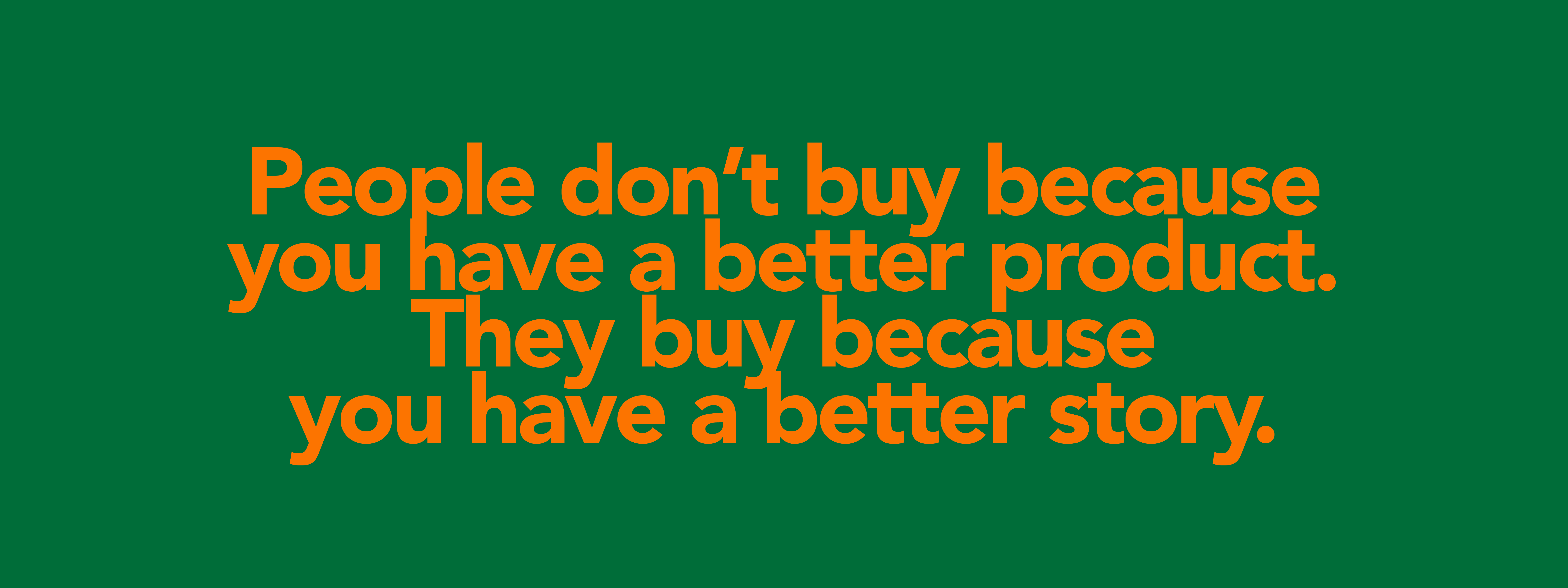Not simply because the hero wins. Or the villain dies. Or the ring is thrown into the volcano.
Not just because it keeps us gripped to our chair, chapter after chapter.
Not because they help us make sense of our world.
We love stories.
And, whether you’re talking about the story of a product or the story of a kung-fu killer, brand stories and ripping yarns have much in common.
Consider the story of a great marketing success.
Then consider any great story from literature. Or science. Or history.
They are about choice.
Sacrifice is the key to any story.
What does the hero choose to do without, or is forced to do without?
Think of the voyages of Odysseus.
Strategy is sacrifice.
Strategy is as much about what you won’t do as what you will do.
Ferrari doesn’t promote its brakes.
Banks don’t talk about their share price when they sell you a home loan.
Makers of luxury fashion don’t run ads in Pix magazine.
Stories have a theme.
Protection of your family – could describe Insurance as much as the plot to Taken.
There’s no place like home – could be “Gone with the Wind”, could be a home loan business.
We love excitement – could be any action movie, ever. Or a BMW ad.
They’re relevant.
Everything in the story is a relevant part of a whole.
Storytellers call this Chekhov’s Gun.
This is a storytelling rule-of-thumb. It states (according to Wikipedia), “… every element in a story must be necessary, and irrelevant elements should be removed.”
Chekhov himself referenced this more than once, essentially saying, “If you say in the first chapter that there is a rifle hanging on the wall, in the second or third chapter it absolutely must go off. If it’s not going to be fired, it shouldn’t be hanging there.”
As he says, quite pointedly, in a letter to Aleksandr Lazarev in 1889, “It’s wrong to make promises you don’t mean to keep.”
Same with brands.
Whether you’re communicating, launching a new campaign, providing a branded experience, delivering a product or considering a different distribution path, if you’re telling a brand story, don’t make a promise you won’t keep.
They carry you along with them.
As great storytellers will tell you, every part of the brand story should drive the audient to the next step.
Same with selling.
Everything you do should drive your customer to the next stage in the brand funnel or purchase pipeline. Which insists you need to understand what your specific funnel looks like. The best funnels are based on behaviours – what do we want the customer to do next. Given this, you need to understand the different behaviours and behavioural drivers of your customers.
But these things, dear reader, are stories for another day.
The brand story is salient.
Brand stories are relatable. They make sense to the audience.
Not all people love Game of Thrones, but people who love escapism and dragons and political intrigue tend to love Game of Thrones.
Not all people love Porsches, but people who love great design, power, speed and tradition tend to love Porsches.
Why should marketers care?
You can’t be all things to all people.
Even the best-selling book of all time hasn’t been read by 90% of people.
(It’s The Bible. In case you’re wondering. And, before you criticise me for using religious beliefs to make a tawdry commercial point, have you read it?.)
Even the third biggest selling book of all time – The Little Prince, Antoine de Saint-Exupéry, 200million copies since 1943 – doesn’t appeal to everyone.
Don’t try and sell everything to everyone.
Not even Amazon can do that.
Yet.
Humans love stories.
As long as humans make up the majority of your customer base, you benefit from telling them a great story.
Just make it worth their attention.
Keep them engaged.
Right.
To the last..
… word.


Leave A Comment